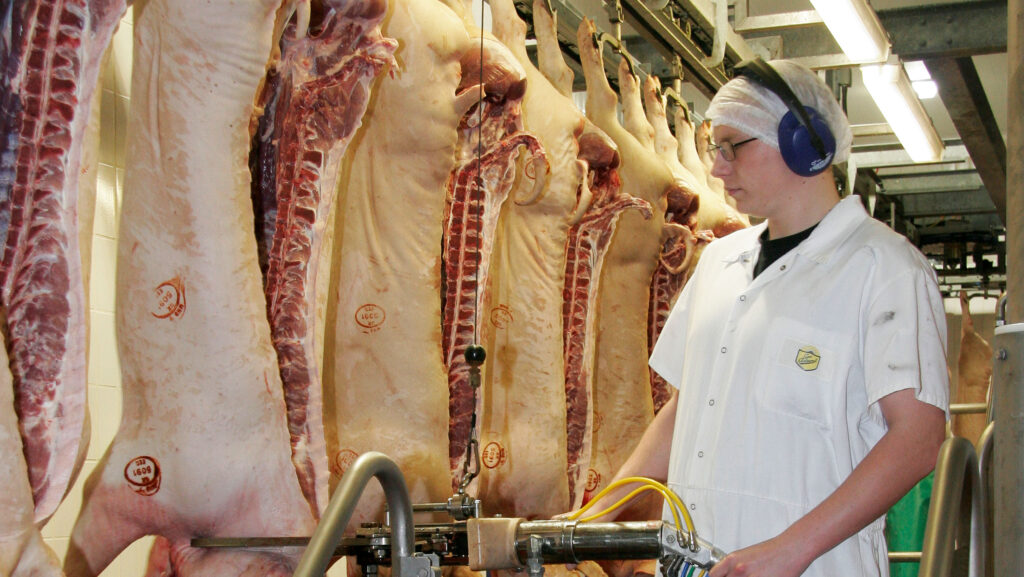FSA’s meat inspection fee hikes set to take effect
 © Tim Scrivener
© Tim Scrivener The Food Standards Agency (FSA) is set to impose an average increase in meat inspection fees of close to 20% at abattoirs in England and Wales from 1 April 2025, adding more financial pressure on the British meat industry.
Industry leaders are outraged, particularly small- and medium-sized abattoirs already struggling with rising operational costs.
Dr Jason Aldiss, executive director of the Association of Independent Meat Suppliers (Aims), described the decision as an “unjustified gouge” on the sector.
See also: Opinion: Small abattoirs at risk from higher vet charges
“Traditional meat inspection delivers no discernible food safety function – it is of no benefit to man nor beast,” said Dr Aldiss.
“In our view, charging something that is known to be pointless is, in essence, fraudulent.”
Letter before action
Solicitors acting on behalf of Aims, the UK’s largest trade association representing abattoirs and processors, have written a letter before action to the FSA, challenging the legitimacy on which they are levying the charges.
Currently, the FSA uses an hourly-based charging system at exorbitant rates as a result of inefficiency and contractor manipulation, which contrasts with the EU’s headage-based system that ensures a more equitable cost distribution across businesses.
GB charges four to seven times more a head for meat inspection than in equivalent slaughterhouses in Ireland and France.
The meat industry has long called for a structural review of the FSA to address inefficiencies before any fee increases.
The fee hikes come after chancellor Rachel Reeves recently called for a reduction in regulatory burdens, making the timing of the FSA’s decision particularly controversial.
Longer transport times
Aims warns the fee hikes could lead to more slaughterhouse closures, reducing competition and consumer choice, especially in rural areas.
It could also negatively affect animal welfare, with longer transport times to fewer slaughterhouses.
Guy MacNaughton, an industry expert, highlighted the challenges in South East England, where recent closures have left regions such as Kent, Sussex, Surrey, and Hampshire with only three overstretched abattoirs.
The closures of Tottingworth in 2023 and Newmans, which had previously served customers including the Isle of Wight and Windsor Farms, have left the remaining sites struggling to meet demand.
With distances between these facilities too great, transport times will increase, exacerbating animal welfare concerns.
“This is anti-growth and will result in more abattoir closures and further contraction of the meat industry,” warned Mr MacNaughton.
FSA response
Dr James Cooper, deputy director of food policy at the FSA, said: “All abattoirs will continue to receive a sizeable discount on the costs of meat inspections, which are required by law, to protect consumers and support exports.
“Industry as a whole receives £14.9m of support on charges with a particular focus on the smallest abattoirs, who receive a discount of up to 90%.
“The level of increase is dependent on a number of factors including the size of the slaughterhouse, throughput of animals, FSA resource required and the designated discount band in which the slaughterhouse is placed.
“The changes in discount bands may affect some medium size abattoirs, who will, nonetheless continue to receive substantial support on the costs of these vital inspections this year.”
The FSA says it is unable to comment further at this time due to the ongoing threat of legal action. In the meantime, it says more information on charging for its Official Controls can be found at this link.
